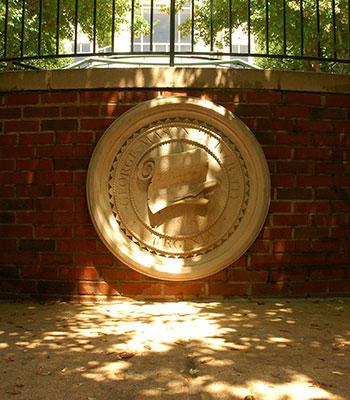
Frequently Asked Questions (FAQs) about RPT for Tenure-line Faculty
External Reviewers
Do external reviewers have to be US-based?
- External reviewers do not have to be based in the U.S. They should be recognized experts in the candidate’s field or fields and can speak to the quality and impact of the candidate’s collective work.
If I am seeking promotion to full, do all of my external reviewers have to be full professors?
- External referees should be recognized experts in the candidate’s field or fields who can speak to the quality and impact of the candidate’s work. In many cases this means they will be full professors at other research universities. Occasionally, they might be associate professors. And in some cases, they will be distinguished scholars in their field who work outside of university settings, such as national institutes, national academies, and/or research centers.
What is the impact of "response rate" on a tenure and/or promotion packet (# external reviewers accept/# external reviewers solicited)?
- These response rates should not be considered in the tenure and/or promotion process. While some colleges/schools might keep track of the “response rate” of external reviewer requests, individuals are advised to avoid making assumptions about why an external referee chose not to provide an assessment. As service demands have increased across the academy, there are a number of valid reasons why an individual might decline to review a candidate’s case.
To learn more, please visit the RPT page on External Reviews.
Tenure Clock Stoppage
Is there a maximum length of time that I can stop the tenure clock?
- The Faculty Handbook addresses tenure-track contract extensions in Section 2.7.4. “Tenure-track contract extensions are granted in one-year increments. Two extensions are normally the maximum that will be granted for any combinations of circumstances. The provost may approve exceptions to this limit. However, in no case will a candidate receive more than three extensions.”
If I take a tenure-track contract extension, will I be held to a different (e.g., higher) standard than my colleagues?
- In accordance with the Faculty Handbook (Section 2.7.4), a faculty member who has received an extension or extensions will be considered using the same tenure criteria as those applied to other faculty in the college/school.
Timing of Promotion and Tenure
Can I go up for tenure “early” (e.g., prior to my sixth year)?
-
In accordance with the Faculty Handbook (Section 2.7.3), “a decision on tenure may be made in any year that the candidate is appointed to the tenure-track unless a specific time is required by the appointment contract.” Generally speaking, a candidate who wishes to come up early should consult with their Local Academic Unit (LAU) head and dean’s office. Candidates should look to their college/school guidelines (and departmental guidelines, if applicable).
My contract at George Mason University started in January. How does this affect my tenure clock?
-
Faculty members who were hired with January start dates will go up at the same time as faculty who were hired in August of that same calendar year.
Work from Prior Institutions
How is my research, scholarly, and creative work prior to coming to George Mason addressed in the review of my candidacy?
-
A candidate’s case is evaluated on the quality and impact of their collective work, including the accomplishments that have happened since joining the George Mason faculty. Candidates should consult with their Local Academic Unit (LAU) head and look to their college/school guidelines (and departmental guidelines, if applicable) for additional information.
Can I include evidence of teaching effectiveness from prior institutions?
-
For candidates who do not have an extensive record of teaching at George Mason University (e.g., who have been at George Mason for less than 3 years), it is appropriate to include evidence of teaching effectiveness from prior institutions. This is particularly helpful if candidates have taught similar courses in the past. Please consult your Local Academic Unit (LAU) head for more specific guidance.
